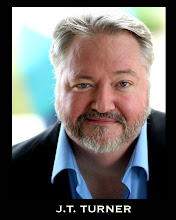
Hopefully you have figured out, via the title, that this is a post about the comma. Oh comma, how I love thee! And yet how misused the comma can be.
I love and respect writers. I stand in awe of all they do, the talent many of them have, and their ability to move us to emotions. And I doubly respect writers of plays, as they give me work! Having said all those nice things, I am now going to state something heretical. Occasionally, it is OK to ignore what a writer wants. (Yes, writers all over America and now furrowing their brows, sitting up, mumbling, "Oh no he didn't!". Yes, I did).
Alright, let me 'splain. When taught to read, we were all taught that when we come to a comma, it means to pause a bit, let there be a break in the flow of a sentence or idea. Since most of us practice reading aloud, (actors should still read aloud when you can), we make that pause a part of our speech pattern. But there is a large difference between reading and speaking, especially speaking in the context of a play. I make choices, hopefully under good direction, about a character, including the way they speak. Many actors see a comma in a line they are speaking and do what they were taught, they pause. But in many cases that breaks the energy, the timing, the passion of the line.
In fact there are some actors that see the comma, and decide to use it for dramatic effect. That is fine, as long as it is a decision that is well thought out, and not a decision made for some fake drama. ("Has the jury reached a verdict? "Yes we find the defendant,,,,,,,,,,,,,,,,,,Mark Smith,,,,,,,,,,,,,,,,,,,,,,,,,,,,,,GUILTY!"). Try this, grab any book, and start reading aloud. Take a giant pause at every comma you come to. Sounds like you are doing a really bad melodrama, doesn't it? So we need some other ways to deal with commas.
I have a few suggestions about the comma. The first one will have the Writers Guild burning me: ignore it. See if the line works if you just speak it as though there is no comma. It may make the power, and energy, of the line greater.
Also try this, instead of pausing on the comma, try to make the last vowel sound that comes before it a bit longer. It will change the effect and impact of what you say, and may open some new ideas in the lines you are saying. (By the way, listen or watch Richard Burton, he is a master at this attack of a comma).So now we have a few ways to attack a line:
PAYING ATTENTION TO THE COMMA- I WANT YOU TO LEAVE, FOREVER.
IGNORING THE COMMA- I WANT YOU TO LEAVE FOREVER
EMPHASIZING AN EARLIER VOWEL- I WANT YOU TO LEEEEVE FOREVER.
I have to note that none of the above applies to Shakespeare. A Shakespearean comma is VERY different from a contemporary one, and Shakespeare is giving us clues on how to say a verse. That is not to say that we always pause at a Shakespearean comma, we just respect it more. It is a lso a clue to what Shakespeare wants done with the line, a topic for a future blog.
I should mention that I don't want you to always ignore the comma and just start reading line after line with no pauses or breaks. That would be odd, and frankly annoying. I am saying that the speech patterns we have differ from how we write, so make smart choices.
So with the next text that you have to speak aloud, at an audition or in a show, try some variation with the comma. It may lead you to new, bold choices in your speech.
J.T. Turner
The Actors Sensei
Have an upcoming audition for a show, or a school? We offer one on one audition preparation at The Actors Company, drop us a line at jtactor@aol.com.






No comments:
Post a Comment